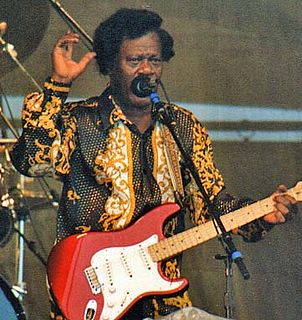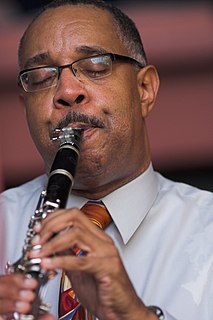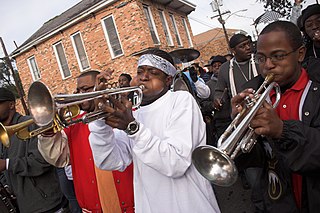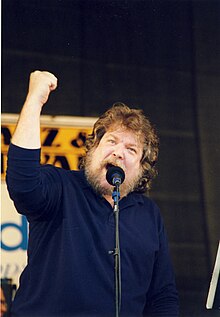
The Original Dixieland Jass Band (ODJB) was a Dixieland jazz band that made the first jazz recordings in early 1917. Their "Livery Stable Blues" became the first jazz record ever issued. The group composed and recorded many jazz standards, the most famous being "Tiger Rag". In late 1917 the spelling of the band's name was changed to Original Dixieland Jazz Band.

Edward "Kid" Ory was a Black Creole jazz trombonist and bandleader. He was born on Woodland Plantation, near LaPlace, Louisiana.

Dominic James "Nick" LaRocca, was an American early jazz cornetist and trumpeter and the leader of the Original Dixieland Jass Band. He is the composer of one of the most recorded jazz classics of all-time, "Tiger Rag". He was part of what is generally regarded as the first recorded jazz band, a band which recorded and released the first jazz recording, "Livery Stable Blues" in 1917.

Pierre Dewey LaFontaine Jr., known professionally as Pete Fountain, was an American jazz clarinetist.

Edwin Branford "Eddie" Edwards was an early jazz trombonist who was a member of the Original Dixieland Jass Band.

Earl Silas Johnson IV, known as Earl King, was an American singer, guitarist, and songwriter, most active in blues music. A composer of blues standards such as "Come On" and "Big Chief", he was an important figure in New Orleans R&B.
The music of Louisiana can be divided into three general regions: rural south Louisiana, home to Creole Zydeco and Old French, New Orleans, and north Louisiana. The region in and around Greater New Orleans has a unique musical heritage tied to Dixieland jazz, blues, and Afro-Caribbean rhythms. The music of the northern portion of the state starting at Baton Rouge and reaching Shreveport has similarities to that of the rest of the US South.

Wallace Foster Davenport was an American jazz trumpeter. Davenport has been one of the few traditional jazz musicians of the 1930s who later branched out into swing and bop styles, as well as backing gospel and R&B vocalists during an extensive career in eight different decades.

Michael White is a jazz clarinetist, bandleader, composer, jazz historian and musical educator. Jazz critic Scott Yanow said in a review that White "displays the feel and spirit of the best New Orleans clarinetists".
New Orleans blues is a subgenre of blues that developed in and around the city of New Orleans, influenced by jazz and Caribbean music. It is dominated by piano and saxophone, but also produced guitar bluesmen. Major figures in the genre include Professor Longhair and Guitar Slim, who both had regional, R&B and even mainstream chart hits.

The music of New Orleans assumes various styles of music which have often borrowed from earlier traditions. New Orleans, Louisiana, is especially known for its strong association with jazz music, universally considered to be the birthplace of the genre. The earliest form was dixieland, which has sometimes been called traditional jazz, 'New Orleans', and 'New Orleans jazz'. However, the tradition of jazz in New Orleans has taken on various forms that have either branched out from original dixieland or taken entirely different paths altogether. New Orleans has also been a prominent center of funk, home to some of the earliest funk bands such as The Meters.

The Dukes of Dixieland was an American, New Orleans "Dixieland"-style revival band, originally formed in 1948 by brothers Frank Assunto, trumpet; Fred Assunto, trombone; and their father Papa Jac Assunto, trombone and banjo. Their first records featured Jack Maheu, clarinet; Stanley Mendelsohn, piano; Tommy Rundell, drums; and Barney Mallon, tuba and string bass. The 1958 album “Marching Along with the Dukes of Dixieland, Volume 3,” lists Frank, Fred, and Jac Assunto, along with Harold Cooper (clarinet), Stanley Mendelsohn (piano), Paul Ferrara (drums), and Bill Porter. During its run the band also featured musicians such as clarinetists Pete Fountain, Jerry Fuller, Kenny Davern, drummers Barrett Deems, Charlie Lodice, Buzzy Drootin and guitar legends Jim Hall, and Herb Ellis. The band also recorded with Louis Armstrong. Fred and Frank Assunto both died young, and the original Dukes of Dixieland disbanded in the early 1970s. In April 1974, producer/manager John Shoup restarted the Dukes of Dixieland with Connie Jones as leader, leased Louis Prima's nightclub atop the Monteleone Hotel in the French Quarter and renamed it "Duke's Place". The Dukes of Dixieland have not been affiliated with the Assunto Family since 1974. The Assunto Family has denied giving away the permission to use the band name with the new lineups, none of which have included any of the original musicians.
Rick Allen is an American blues, rock and R&B Hammond organist and pianist. In the 1960s, he played organ trio gigs in Los Angeles and did session work with singers and guitarists such as Jerry McGee and Rick Vito. In the 1970s, he toured with Don Preston, and recorded with Delaney & Bonnie. Allen moved to New Orleans in the 1980s, where he played and recorded with a number of blues and cajun performers including Ernie K-Doe, King Floyd, Freddy Fender, Marcia Ball.

Chicago, Illinois is a major center for music in the midwestern United States where distinctive forms of blues, and house music, a genre of electronic dance music, were developed.

"Livery Stable Blues" is a jazz composition copyrighted by Ray Lopez (né Raymond Edward Lopez; 1889–1979) and Alcide Nunez in 1917. It was recorded by the Original Dixieland Jass Band on February 26, 1917, and, with the A side "Dixieland Jass Band One-Step" or "Dixie Jass Band One-Step", became widely acknowledged as the first jazz recording commercially released. It was recorded by the Victor Talking Machine Company in New York City at its studio at 46 West 38th Street on the 12th floor – the top floor.
Dixieland, sometimes referred to as traditional jazz, is a style of jazz based on the music that developed in New Orleans at the start of the 20th century. The 1917 recordings by the Original Dixieland Jass Band, fostered popular awareness of this new style of music.

"Sensation Rag" or "Sensation" is a 1918 jazz instrumental by the Original Dixieland Jazz Band. It is one of the earliest jazz recordings. It is not related to Joseph Lamb's 1908 "Sensation Rag", which is a ragtime piano piece.

"At the Jazz Band Ball" is a 1917 jazz instrumental recorded by the Original Dixieland Jazz Band. The instrumental is one of the earliest and most recorded jazz compositions. It is a jazz classic and a standard of the genre.

Scott Sharrard is an American musical artist widely known as the lead guitarist and musical director of the Gregg Allman Band. A prolific songwriter and talented singer, he has also released several soul-influenced albums of his own including three with his first band, The Chesterfields, followed by three solo albums and, most recently, the eponymous release by his current band, Scott Sharrard & the Brickyard Band, in 2013. In 2020, Sharrard was announced as a new member of Little Feat following the death of Paul Barrere.















